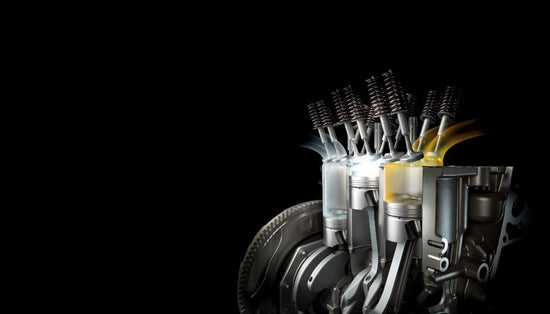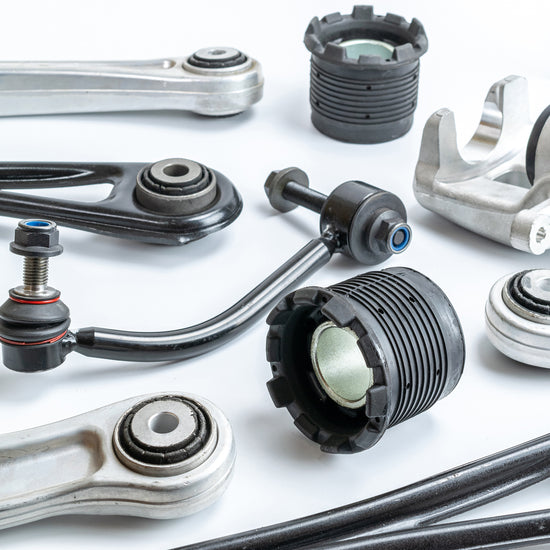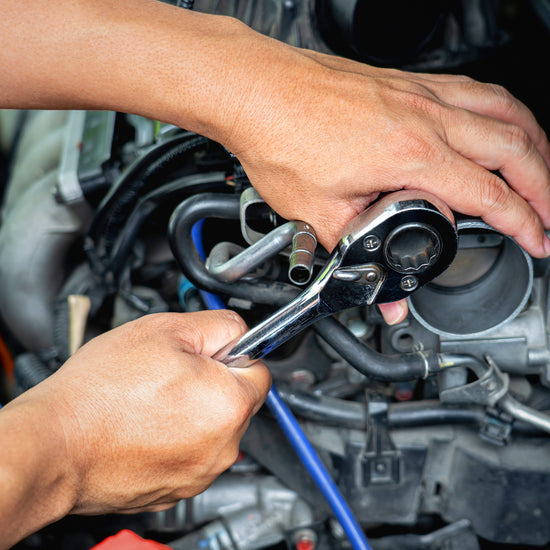Since its launch in 2012, the Ford 1.0 EcoBoost engine has been praised for delivering impressive power and efficiency from a small three-cylinder design. It quickly became one of Ford’s most popular engines, fitted in models such as the Fiesta, Focus, and Puma.
However, as these engines age, questions about their long-term reliability have become increasingly common, especially for drivers considering repair or replacement options. So, how reliable is the Ford 1.0 EcoBoost in 2025? Let’s take a closer look.
Understanding the Ford 1.0 EcoBoost Engine
The Ford 1.0 EcoBoost engine was a bold step forward in downsized, fuel-efficient petrol engines. Designed to deliver the performance of a larger 1.6-litre engine while cutting emissions and fuel consumption, it quickly became a bestseller across Europe.
Ford’s engineers achieved this balance of power and efficiency through several key technologies:
-
Turbocharging for added power:
The single turbocharger boosts performance without the need for a larger engine. Despite its small size, the 1.0 EcoBoost produces up to 140 bhp, giving lively acceleration and excellent fuel economy particularly in models like the Fiesta and Focus. -
Direct fuel injection for precision efficiency:
By injecting fuel directly into the combustion chamber, the engine achieves a cleaner, more controlled burn. This improves both power delivery and emissions, helping Ford meet strict Euro 6 standards. -
A timing belt running in oil:
Unlike conventional dry timing belts, the EcoBoost’s “belt-in-oil” design reduces friction and noise, contributing to smoother running and improved efficiency. However, it also makes the engine more sensitive to oil quality and service intervals.
This combination of compact engineering and clever design earned the 1.0 EcoBoost multiple International Engine of the Year awards and widespread praise from both drivers and reviewers.
But with such innovation came complexity. As these engines aged, some owners began to experience cooling, lubrication, and belt wear issues, particularly in earlier versions. These are well-known and largely addressable problems when properly maintained or reconditioned.

Common Ford 1.0 EcoBoost Issues
While Ford has refined the EcoBoost over the years, early versions (especially 2012–2017 models) have gained a reputation for a few recurring faults. Understanding these can help owners prevent costly repairs or make informed decisions about engine reconditioning or replacement.
1. Coolant Leaks and Overheating
One of the most widely reported issues involves coolant loss due to a failing “degas” pipe or thermostat housing. When these parts crack or leak, coolant levels drop and the engine can overheat, leading to warped cylinder heads or total failure.
Ford later introduced a redesigned cooling system with a modified pipe and revised thermostat housing to address this. However, drivers of older vehicles should regularly inspect coolant levels and hoses as overheating is often a warning sign of deeper issues.
2. Turbocharger Problems
The 1.0 EcoBoost’s small turbocharger is highly efficient, but it relies on consistent oil quality and pressure. Any contamination, sludge build-up, or oil starvation can lead to premature wear or turbo failure.
Symptoms include:
-
Whining or whistling noises under acceleration.
-
Loss of power or boost.
-
Excessive smoke from the exhaust.
Frequent oil changes with the correct specification (Ford WSS-M2C948-B) and allowing the engine to cool after long drives can greatly extend turbo life.
3. Timing Belt Deterioration
Perhaps the most discussed aspect of the EcoBoost design is its “belt-in-oil” timing system. While quieter and more efficient, it demands meticulous servicing. If oil changes are missed or the wrong oil is used, the belt can degrade, releasing particles into the lubrication system and causing oil blockages or engine failure.
Ford recommends belt inspection or replacement typically every 8–10 years or 100,000 miles, but many specialists, including Approved Engines, advise shorter intervals for added peace of mind.
4. Oil Pressure and Pump Issues
Some early engines suffered from low oil pressure warnings, often linked to blocked oil strainers or failing pumps. This issue is closely tied to timing belt deterioration and sludge build-up in the oil system.
When oil flow is restricted, components like the turbocharger and crankshaft bearings can quickly suffer damage. Reconditioning or rebuilding the engine ensures clean oil channels, new seals, and a reliable pump system, restoring long-term dependability.
5. Other Notable Issues
In addition to the main four, owners have also reported:
-
Carbon build-up on intake valves due to direct injection.
-
Misfires or rough idling, often linked to coil pack or spark plug wear.
-
PCV (Positive Crankcase Ventilation) valve issues, leading to increased oil consumption.
Regular servicing, correct oil use, and early diagnosis can prevent most of these problems, ensuring the EcoBoost continues to perform efficiently for years to come.
How Reliable Is It in 2025?
In 2025, the Ford 1.0 EcoBoost continues to be recognised as a cleverly engineered and efficient small-capacity engine, provided it receives proper maintenance. Ford’s post-2018 updates, including revised coolant routing, redesigned seals, and upgraded timing components, have significantly improved reliability and reduced the issues that once plagued early versions.
Modern iterations of the engine, found in vehicles such as the Ford Fiesta ST-Line, Focus EcoBoost Hybrid, and Puma, now benefit from better thermal management and stronger internal components. These refinements mean that with regular oil changes, timely servicing, and quality parts, many drivers experience well over 120,000 miles of trouble-free use.
However, as the earliest 1.0 EcoBoost engines approach or surpass the 10-year mark, wear and tear become inevitable. Problems such as timing belt degradation, turbo wear, or coolant leaks may reappear, especially in vehicles with incomplete service histories. In these cases, a full reconditioning or replacement is often the most practical way to restore reliability and performance.
In short, by 2025:
-
Newer models (2018 onwards) are proving far more durable and dependable.
-
Earlier engines (2012–2017) can still perform well, but only with consistent and expert maintenance.
-
For high-mileage or previously neglected vehicles, reconditioning offers a second life, often at a far lower cost than buying new.
Repair or Replace? The Case for Reconditioned EcoBoost Engines
If your EcoBoost engine has suffered a major failure, replacing it with a reconditioned engine can be a cost-effective and environmentally responsible solution.
At Approved Engines, we specialise in remanufactured Ford EcoBoost engines that meet or exceed original performance standards. Our expert team:
-
Rebuilds engines using OEM or equivalent-quality parts.
-
Pressure-tests, cleans, and replaces key components like pistons, bearings, and seals.
-
Offers comprehensive warranties for peace of mind.
-
Provides supply and fitting services directly at our Suffolk workshop.
This approach not only restores reliability but can extend the life of your vehicle by many years at a fraction of the cost of a new car.
Learn more about our Engine Repair & Rebuild Services.
Maintaining Long-Term Reliability
Whether you own a newer or older EcoBoost, reliability depends heavily on maintenance. Here are a few key tips:
-
Use the correct oil (Ford WSS-M2C948-B or equivalent) and change it every 6,000–8,000 miles.
-
Inspect coolant levels regularly to prevent overheating.
-
Listen for unusual turbo noises — early detection can save you costly repairs.
-
Book regular servicing with an experienced garage familiar with EcoBoost engines.
The Ford 1.0 EcoBoost remains a clever and efficient engine design but like any modern turbocharged unit, it demands careful maintenance and expert care. By 2025, many of these engines will have proven reliable when serviced correctly, but neglected units may require professional attention or replacement.
If your EcoBoost is showing signs of trouble, such as overheating, loss of power, or oil pressure warnings, it might be time to explore reconditioning options.
Contact Approved Engines
Based in Acton, Sudbury, Suffolk, Approved Engines provides professional engine repair, rebuild, and fitting services for Ford EcoBoost models and beyond.
Book an appointment or request a quote today.







